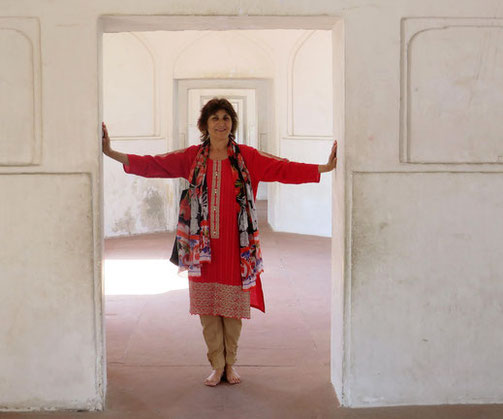What is TBT and what makes it such a unique tool?
TBT is a clever combination of meridian tapping and NLP formats (Neurolinguistic Programming). The technique implements the latest research on trauma and findings about the neuroplasticity of the brain: the ability of our brain cells to disconnect and engage in new connections.
Picture a trauma as a blind shell: an unexploded bomb buried a few meters deep underneath the earth surface. This bomb continues to be highly explosive and dangerous – regardless of the time it has been lying there unnoticed. TBT de-activates such a bomb by means of removing the ignition.
In the standardised TBT process a stressful memory is taken through the four-step treatment protocol. But first of all, the main shock point, the moment with the highest emotional intensity in this specific event, is identified and isolated. Then the information in and around this shock point is distorted and scrambled on the auditory and/or visual perception channels.
Between the individual steps, the original event is contacted again and again resulting in a neurological re-conditioning of the experienced. This profoundly changes the way it is remembered: the emotional and physical experience of the memory. It will still be remembered as a negative event, but upon the TBT process it is perceived as something which lies in the past and as of now has come to a closure. It has found its place in the continuum of one's personal biography and thereby lost its influence on the present. Post-traumatic symptoms disappear and the self-efficacy of the person can be restored.
TBT was developed by my EFT Founding Masters colleague Rehana Webster, BSc. Rehana's website: www.traumabustertechnique.com
The resident of Australia and New Zealand dedicated ten years of her life to the finetuning of her technique and has been very successful in relieving posttraumatic stress symptoms in adults and children, detainees, refugees and soldiers.

"After the Bombs": Operation TBT in Lebanon
In this 30 minute long video produced by Swiss filmmaker Robert Albert Ernest you can see how Rehana Webster helps Syrian refugees in Lebanon to eliminate their posttraumatic stress. All participants in this workshop had been imprisoned where some of them experienced torture. However, this video doesn't contain any explicit violent content nor any disturbing images.
3 Minutes on Trauma and the Brain

Watch this "explanatory video" to learn something about the problem of fragmented memory contents.
Advantages and Benefits of TBT
- The TBT process is very gentle. As a rule, a session with TBT is relatively stressfree and easy on clients which reduces the risk of retraumatisation within a session.
- The technique is designed in such a way that any emotional re-experiencing of an event is kept at a safe distance. Because of this, only a minimum of stabilising measures needs to be established in advance of the session.
- TBT is a relatively quick process. Most shock trauma can actually be resolved in one session.
- A feeling of relief usually sets on immediately after a session with TBT.
- Based on Rehana Webster's long-term experience along with that of her TBT Practitioners worldwide, sessions which are done in line with the TBT protocol have sustainable results. In general, they don't need any post-treatment work or subsequent sessions.
- The technique can be explained easily and doesn't require any complicated language. As soon as a client understands the process, he can be guided through the individual steps whilst he narrates what happened to him in his mother tongue.
- TBT is suitable for adults and children alike. It is well accepted by people of any cultural or religious background.
- The technique can be applied to any stressful memories which contain a moment of shock – regardless of how long the event dates back into the past.
- The only condition is that there is a conscious memory of what happened.
- The technique is well structured which makes it easy to learn and apply.
Frequently Asked Questions
Much about this new trauma technique makes people curious. Here you can read some of the frequently asked questions and my answers to them.
Training in TBT
I hope to be teaching my first TBT workshop in English in the year 2021. If you are interested, please send me an email via my contact form.
Newsletter
By means of my newsletter, I will inform you around four times per year on my TBT training dates and interesting things in the field of energy psychology.
